- Q.
My mother has stage 4 breast cancer and I'd like to know if she would be eligible for any clinical trials.
A.Whether or not a clinical trial would be an option for your mother will be determined by several factors. The guidelines that clinical trials follow state who will be able to join the study, based on the questions the research is trying to answer. Therefore, your mother’s type of cancer, as well as the stage of her disease, her age and whether she has received any prior treatment would be examples of some of the eligibility criteria that may come into play. I would encourage you and your mother to speak to her doctor about this important question, since only her doctor can determine whether a clinical trial would be appropriate.
To locate clinical trials that might be suitable for her, call the National Cancer Institute’s (NCI) Cancer Information Service at 1-800-422-6237, or you can search the NCI’s clinical trials database. If you need help using our clinical trials online search form, read Help Using the NCI Clinical Trials Search Form.
CancerCare’s clinical trials publications are also excellent resources.
- Q.
Since being diagnosed with breast cancer, I can't seem to keep on top of things like I used to and it seems like I'm in a fog. I've mentioned this to my doctor but I think his focus is more on my treatment and less on my concerns. Anything I can say to make him listen?
A.After being diagnosed with cancer, many women report having trouble finding words and remembering things. Be persistent in communicating with your doctor about what you are experiencing. Here are some tips that may help you:
- Request a time to speak with your doctor to focus on your specific concerns
- Express how these concerns are affecting you and your quality of life
- Be specific and give examples
- Use statements such as, “I need your help understanding this” and “Do you have any suggestions on what I can do?”
For more tips read our publications, Communicating With Your Health Care Team and “Doctor Can We Talk?”
It’s also possible that you may be experiencing side effects from chemotherapy. This is sometimes referred to as “chemobrain,” a condition that affects your short-term memory. You may consider getting evaluated by a neuropsychologist (an expert trained in how the nervous system, especially the brain, controls mental functions such as language, memory, and perception) who can assess any cognitive changes and suggest mental exercises to improve memory and thinking. Chemobrain usually lessens over time once treatment has ended.
A few steps you can take now to improve your memory:
- Keep a notebook or day planner where you can write down things you need to remember
- Keep the notebook in a specific place so you can find it when you need to
- Use Post-it notes to place reminders in your home, office or other spaces
To learn more about chemobrain, read CancerCare’s fact sheets:
- Q.
I was diagnosed with DCIS last year and my family's reaction has been "it's not really cancer". It hurts me that during my biopsies, lumpectomies and radiation, no one asked how I was doing. How do I get over the disappointment with my family and manage the stress of my own diagnosis?
A.Ductal carcinoma in situ (DCIS) is an early noninvasive form of breast cancer in which abnormal cells multiply and form a growth within a milk ducts of the breast. The term “noninvasive” means that the abnormal cells have not spread out of the milk duct into other parts of the breast. DCIS is normally found during a mammogram and confirmed by a biopsy. If left untreated, it is more likely to develop into invasive breast cancer so it is important to seek treatment.
During times of crisis such as health emergencies it is not unusual for friends, family members and loved ones to react in unexpected ways. Based on what you have shared, it sounds like your family’s response was unsympathetic and hurtful. Often times, loved ones think that they should only be positive or always look on the bright side. This can leave the patient feeling unsupported and unable to express his or her true feelings. I’m not sure if you’ve shared your feelings with your family, but sometimes people do not know what to say or do and need a little guidance.
Support groups can be an important part of overcoming your feelings of disappointment. Groups are a place where you find the support you need and feel heard and understood. Make sure to find a group that is a good fit for you; some organizations offer groups for women who’ve been diagnosed with DCIS or early stage breast cancer, including SHARE: Self-Help for Women with Breast or Ovarian Cancer.
I encourage you to be take care of yourself. You may want to explore individual counseling to work through your disappointment and stress. Learn more about counseling.
- Q.
I'm trying to prepare myself mentally about having a mastectomy. I don't think I would ever want to look at my body again, much less expect my significant other to ever find me attractive. Not sure what to do...
A.A surgery that removes part of you is a loss and must be honored with mourning and grief. A loss changes you but also can make you more aware of what you still have. Most people need time to get used to the scars on their body. With patience and caring, couples do enjoy being intimate again. The following suggestions may help:
- Keep a journal in which you can freely express your thoughts and write down all of your feelings, both good and bad.
- Reach out to your loved ones. Let them know what kind of physical affection and comforting you need.
- Give yourself credit. Practice praising yourself about any of the things you like about yourself, such as your intelligence, your faith, your laugh, your kindness and other positive qualities.
- Be generous to yourself. Give yourself little gifts that give you pleasure such as a new book of poems, a massage, or a spa product.
- Take relaxing baths. Use music, candles, or flowers to enhance the experience.
- Adorn the new you. Get new make-up that complements your best features. Choose clothing colors that match your current skin tone. Seek out programs such as Look Good, Feel Better to learn helpful tips.
- Join a support group of women who have similar concerns. CancerCare offers online and telephone support groups and our oncology social workers can help you locate face-to-face groups in your area.
- Share information with your partner. Communicating your feelings (and having your partner do the same) is very important as you go forward together.
- Q.
I have been treated for breast cancer and I just don't feel like being intimate. Is this due to my treatments or did I just change as a person? My partner is concerned and wants to know if we will ever be intimate again?
A.For many women, treatment for breast cancer has a side effect of reducing their desire for physical intimacy. This occurs when your treatment has affected the amount of estrogen your body produces. There are ways for you to address your partner’s wish for physical intimacy. But one of the issues between the two of you may have something to do with communication. Openly discussing sex may not be typical even for couples who have been together for a long time. Reminiscing about the funny and tender things you have shared together, and your history of how you met and became a couple, can be a comfortable way to begin. Your sexual relationship is a part of being a couple, but there are many other parts to your relationship such as emotional closeness, feeling your partner is there to comfort and support you, affection, and companionship to name a few. Once you have addressed these aspects of being a couple, being physically intimate becomes a natural part of sharing your love with each other.
Being diagnosed with cancer often leads people to reevaluate their lives and sometimes this changes their priorities. If you have been satisfied with your relationship prior to cancer, then I’d expect you would be satisfied after treatment even if your relationship needs some fine tuning. Joining a support group or seeking counseling, whether individually or as a couple, can further help you and your partner.
To find a counselor who specializes in intimacy issues, contact the American Association of Sexuality Educators, Counselors and Therapists.
- Q.
I've just been diagnosed with breast cancer. Even with insurance, I have many out-of-pocket expenses. What organizations can help me?
A.Even with insurance, most people are unprepared for the out-of-pocket expenses for medical care. These expenses can include co-payments and medications for side effects, as well as costs for transportation to and from treatment and childcare. Covering general daily living expenses can also be challenging, especially if there is a loss of income due to the diagnosis and treatment.
There are organizations that offer financial help to people with cancer to cover some of the costs related to their diagnosis. Several specifically assist breast cancer patients.
CancerCare, for example, offers limited assistance for transportation, homecare, and childcare for women who qualify. Limited funds are also available to assist with certain oral, pain, and anti-nausea medications, lymphedema supplies, and durable medical equipment.
Some local divisions of the American Cancer Society may also have volunteer programs to help with transportation to treatment, as well as assistance with wigs and prostheses.
Co-pay foundations are independent charities that assist insured patients who qualify with the co-pay costs of their pharmaceutical products. Clients may contact each foundation for information but can apply only to one foundation. Learn more about co-pay foundations.
Finding help with daily living expenses can be more of a challenge. Breast cancer organizations like Susan G. Komen for the Cure often fund Safety Net Programs. Call Komen’s helpline at 1-800-I’M AWARE for the number of your local affiliate to find out if there is a program near you.
Also try the 211 referral line of your local United Way for links to community programs that assist with daily living costs.
CancerCare offers helpful fact sheets on finding financial assistance in your community:
- Q.
I need information or possibly first hand knowledge of how Tamoxifen affects men. I am a male with breast cancer undergoing this treatment and I'm not sure how I'm supposed to feel but it doesn't feel normal. Can you help?
A.This is an important question and one that is not asked often, because of the rarity of male breast cancer. In fact, male breast cancer accounts for only 1% of all breast cancers. Men have a lifetime risk of about one-tenth of 1%, or one in 1,000, of developing breast cancer, according to the American Cancer Society. Most male breast cancers occur between the ages of 60 and 70, although a diagnosis can occur at any age.
All men have a small amount of breast tissue, which is located directly behind the nipples and produce a small amount of the female hormone, estrogen. Research has established that higher than normal levels of estrogen can result in gynecomastia, a condition in which the male breast is abnormally enlarged, or male breast cancer. Other risk factors that may lead to male breast cancer are: a family history of breast cancer, either male or female; overexposure to radiation of the chest area; cirrhosis of the liver; and obesity.
Male breast cancer can manifest as a firm, non-painful mass located just below the nipple or may cause skin changes on or around the tissue of the nipple such dimpling, redness, scaling, discharge or retraction. As with women with breast cancer, treatment depends on many factors, including the stage at diagnosis and the overall health of the patient.
Most male breast cancers are hormone-dependent, so estrogen-blocking treatments including Tamoxifen are often used. Possible side effects for men taking Tamoxifen include headaches, nausea, hot flashes, skin rash, fatigue, sexual dysfunction, and weight and mood changes. For more information about Tamoxifen and other hormonal therapies, read the National Cancer Institute’s, “Male Breast Cancer Treatment” and “Tamoxifen Questions and Answers”, and the American Cancer Society’s “Breast Cancer in Men”.
In addition to coping with treatment side effects, you may also be experiencing new feelings and emotions. From my research, most men state that having breast cancer doesn’t feel normal and this can create additional stress. I strongly suggest you talk to other men who have been diagnosed, both for support and also to learn new ways to cope with treatment side effects.
CancerCare offers publications about coping with treatment side effects, Connect Education Workshops, individual counseling, and support groups (online, telephone and face-to-face).
Finally, make sure you speak with your oncologist about any side effects or feelings you have, so that he or she can work with you to help you better manage your situation.
- Q.
I was diagnosed with breast cancer in late 2010. I received 6 rounds of chemotherapy, and I still experience severe knee pain. Is this pain related to the chemotherapy and when will it end?
A.It is not uncommon for people who have undergone chemotherapy and other cancer treatments to experience long-term side effects. For example, certain breast cancer treatments such as chemotherapy and hormonal treatments may contribute to bone loss, which could cause knee pain (view our bone health resources). Your body’s reaction to cancer treatment depends on factors such as treatment length, dosage prescribed, and your personal health history. Most side effects are temporary, but some can last for some time after treatment is over.
It is important to discuss your symptoms with your medical team so you can find some relief. Are they aware of your knee pain? I would strongly encourage you to tell your doctor about your concerns if you haven’t already. He or she is in the best position to investigate whether your pain is chemo-related. In the event that your doctor is not accessible, your nurses and oncology social workers are great resources. Nurses have a wide range of skills and are usually in charge of implementing the plan of care your doctor has set up for you. They are trained to administer medication, monitor side effects, and educate you on the medications you are receiving. Oncology social workers are professionally trained to counsel people affected by cancer and help them access practical assistance. They can also act as a liaison between you and members of your medical team. CancerCare offers a free podcast with tips to help you plan for your post-treatment medical appointments, Communicating With Your Health Care Team After Treatment: Making the Most of Your Visit.
Finally, many people find it helpful to keep a record of side effects to bring to your next appointment. You can create a daily journal that details information such as when the pain occurred and for how long, how strong was the discomfort/pain using a scale of 1-10, and how the side effect impacts your daily activities. Learn more about our resources on coping with pain.
- Q.
My wife is receiving chemotherapy for breast cancer and I know the holidays will be hard. Do you have any suggestions as to what I can do to help her?
A.The holidays often represent a time of celebration and connecting with loved ones; coping with cancer treatment during this time can be stressful. Your wife may be experiencing side effects that make it hard to focus on the holidays alone, but there are many things that you can do to help her cope with the stress of treatment and to enjoy this holiday season. You can help your wife significantly by paying attention to both her physical and emotional needs, as well as your own.
Talk to your wife about how she wants to spend the holidays. You can also support her as she makes decisions about what activities she can tolerate this year. Managing expectations is an important part of coping with a cancer diagnosis, so consider what traditions she may need to take a pass on this year. Establishing new holiday traditions with close family and friends may allow her to feel more satisfied and supported.
Having an open conversation with her medical team about holiday plans can help provide guidance and support in managing side effects appropriately. They may be able to make dietary suggestions, offer advice on pain management, or make a more flexible treatment schedule if possible. This may help in keeping her focused on the meaning of the holidays rather than uncomfortable side effects.
Also, take good care of yourself this holiday season. As a caregiver, it is important that you think about your needs as well. Talk to friends, go for a walk, or spend alone time with your wife. Considering your own feelings will help to maximize the support you are able to offer your wife.
CancerCare offers publications to help you and your family cope with the holidays during cancer treatment:
You can also listen to CancerCare’s Connect Education Workshops that address coping with cancer during the holidays.
CancerCare’s professional oncology social workers can provide emotional and practical support to further help you and your family find ways of coping. Please call us at 800-813-4673 for support and practical help.
- Q.
I have metastatic breast cancer. I drive from Spartanberg, SC to Charleston, SC once a month and stay over for about two nights for treatment. Is there any help you give for transportation and/or lodging costs?
A.CancerCare offers limited assistance for transportation, home care and child care for women who qualify. Limited funds are also available to assist with certain oral, pain, and anti-nausea medications, lymphedema supplies and durable medical equipment. Please call us at 800-813-HOPE (4673) to apply.
American Cancer Society’s Road to Recovery program provides transportation to and from treatment for people who have cancer and either do not have available transportation or are unable to drive themselves. Volunteer drivers donate their time and the use of their cars so that patients can receive the treatments they need. Call 800-ACS-2345 to find out if Road to Recovery is available in your community.
Joe’s House is an online database listing thousands of places to stay across the country near hospitals and treatment centers that offer a discount for traveling patients and their loved ones.
Society of St. Vincent de Paul provides various services to people in need, including food programs, emergency financial assistance, emergency transportation, rent/mortgage assistance, free pharmacy services, budget counseling, referral services and more. To get help, contact the nearest Catholic Church in your community and ask if they have a Society of St. Vincent de Paul Conference in their parish or know of one close by. You can also look for “Society of St. Vincent de Paul” in your local White Pages or call 314-576-3993.
Your local United Way may know of resources that offer financial assistance. To find your local office, please visit their website or call 651-291-0211 or 211.
Finally, you can search for local resources through a website created by the Cancer Financial Assistance Coalition.
- Q.
I had a lumpectomy and lymph nodes removed for breast cancer in January 2013 and was out of work until July due to complications. I have insurance, but am left with a stack of bills that I owe for my care during this year. My insurance has a $600 deductible, and I have to pay 20% of what my insurance does not cover. I am unable to find any help other than for the medication related to the cancer and am extremely stressed over this. My husband is disabled and on a fixed income. Is there any help out there for co-pays and deductibles not related to medication? Thank you for any help you can give me.
A.Even with insurance, most people will have out-of-pocket costs for their medical care. This can include but is not limited to co-payments, medications, transportation and living expenses such as rent /mortgage, utilities, car payment, insurance and food.
Finding help for out-of-pocket expenses can be a challenge. The following websites offer possible resources:
- The American Cancer Society’s searchable database
- The Patient Advocate Foundation’s National Financial Resource Directory
- The Cancer Financial Assistance Coalition’s searchable database
You may also find additional helpful information in our fact sheets on finding financial assistance in your community:
CancerCare’s staff of oncology social workers can also provide you with emotional support and help you search for local resources: 800-813-HOPE (4673).
- Q.
Where can I find treatment guidelines and recommendations for triple-negative breast cancer?
A.Each person’s cancer is different, and so there is no one-size-fits-all treatment for triple-negative breast cancer. New research suggests that even within triple-negative breast cancer, there are many subtypes. Therefore, the best treatment plan is one that your medical team carefully tailors to your unique situation. Generally speaking, treatment for triple-negative breast cancer commonly consists of surgery, chemotherapy (given neo-adjuvantly – before surgery – or adjuvantly – after surgery), and radiation. Even when surgery appears to successfully remove all visible cancer, chemotherapy is often given as systematic therapy, as it treats the whole body by moving through the bloodstream. Chemotherapy adds an extra layer of protection against cancer recurrence because there is a chance that tiny cancer cells could remain in the body after surgery. Triple-negative breast cancer is uniquely chemosensitive, meaning that chemotherapy is a very effective treatment for this subtype of breast cancer. Common chemotherapies for triple negative breast cancer may include an anthracycline such as Adriamycin, alkylating agents such as Cytoxan, and a taxane, such as Taxol or Taxotere. Fluorouracil (5FU) may be given as well. Often a combination of drugs, or a “chemo cocktail,” is given to disable and kill cancer cells. Genetic testing may be conducted to determine if you carry genetic risk factors for recurrence or a second cancer. There is a wealth of information on treatment for triple-negative breast cancer on the Triple Negative Breast Cancer Foundation’s website.
Clinical trials for triple-negative breast cancer should not be overlooked. Clinical trials offer the chance to try new, promising treatments before they are available to the public. Clinical trial participants are volunteers and can withdraw from the trial at any time. Trials move through three phases that analyze different aspects of a medicine such as safety, how well a treatment works for a certain type of cancer, and comparison to how well the new treatment works versus the established, approved treatment. In addition to personal benefit, clinical trials pose an opportunity to contribute to science, and help women in the future who will be diagnosed with triple-negative breast cancer. It is critical to be informed about clinical trials early on, as many trials exclude patients who have received previous treatment. Ask your medical team about clinical trials. You may also search online using BreastCancerTrials.org or The Clinical Trials Matching Service.
I strongly encourage you to speak with your medical team about why a specific treatment plan was recommended for you.
- Q.
I've just started treatment for breast cancer and I need to talk about my fears and concerns with the people who are closest to me. But my family just says, "Oh, you'll be fine" and to stay positive. How I can I get them to listen?
A.It’s often frustrating to hear our loved ones tell us that everything will be okay and to just think positively. It can feel dismissive and uncaring. However, our friends and family often do not intend to sound unsupportive, but may find it difficult to hear that you are struggling because they care about you so much. Or they might rush to comfort you, thinking that it’s helpful to tell you that things will be fine.
It’s absolutely okay to see things from a more optimistic perspective, or to have hope that things will get better, but trying to force yourself to think positively all the time adds more pressure and stress and can make you feel worse. It’s preferable to let yourself feel the negative emotions, as well as embracing the positive ones. If you try to shut off your fears and worries, it can make you hold onto them longer.
Try telling your friends and family that you appreciate their concern and realize that they’re just trying to be helpful, but that it is in fact more supportive if they just lend you an ear and a moment. Let them know that you are not asking them to solve your problems, that you just need to express your feelings. Sometimes you’ll have bad days and need to vent.
Ask them if they can shoulder some of your burden, just by listening, knowing that you would do the same for them. If they cannot, consider talking to an outside professional instead, like a CancerCare social worker. Sometimes you need a more objective person to create a safe space for all your feelings, positive and negative.
Our Connect Education Workshop Helping Cancer Patients and Their Families Cope with the Stresses of Caregiving might be helpful for you and your loved ones to listen to.
Remember, not all families can respond in ways that will be helpful. A support group might be useful to you as a way to connect with others who understand how you are feeling. We offer groups in-person, over the telephone, or online. You can also contact us at 800-813-HOPE (4673) and speak with an oncology social worker.
- Q.
I am 40 years old and had my first mammogram. It showed an area that they believe is probably benign (not cancer). They said that I have dense tissue and that it can be harder to evaluate the results. What can I do? How can I help myself?
A.It is common for younger women who have not yet entered menopause to have dense breasts. Breasts consist of milk glands and ducts, fatty tissue, as well as connective tissue. Fatty tissue appears dark or transparent on a mammogram, making it easy to see through. However, connective tissue shows up as white on a mammogram, making it difficult to detect cancer which also appears white. Think of it as looking for a polar bear in a snowstorm. If a woman’s breasts consist of mostly connective tissue, they are considered “dense.” Some states now require doctors to inform their patients that they have dense breasts, as dense breast tissue can obscure cancerous tissue.
In order to get a better look inside dense breasts, other imaging techniques may be used in addition to mammogram. For instance, your doctor may recommend a breast MRI, which uses magnets instead of radiation. Or, he or she may suggest a breast ultrasound, which uses sound waves to investigate areas of concern picked up on a mammogram. Each test has different benefits and risks, so it is best to talk with your doctor about which makes the most sense for you as an individual. It may be helpful to know that 80% of breast changes are benign, or not related to cancer.
I applaud you for being proactive about your breast health.
- Q.
How long after completing breast cancer treatments can you still feel fatigued? Should I have any special follow-up?
A.For women who have had radiation as part of their treatment, it can take several months until their normal level of energy returns and most women report that it takes about a year after completing treatment that they begin to feel like their old selves. Remember, each person’s response to treatment is different so be patient with your recovery. It might be helpful to join a support group to find out ways others are managing these challenges.
Fatigue is one of the most common complaints of women dealing with breast cancer. Whether it is caused by chemotherapy, radiation, taking an aromatase inhibitor or simply by stress it needs to be addressed. The first thing to do is to discuss with your doctor why you are so tired and what can be done to help.
There are some simple things you can do to help yourself:
- Pace yourself but try to stay active; conserve your energy for your priorities and find your own comfort level.
- Take power naps, a 30-minute nap can help without disturbing your night’s sleep.
- When friends or family ask what they can do-delegate! For instance, let them drive to soccer practice or pick up the groceries.
- Try simple exercises such as walking or yoga, which can help regain energy and clear the mind.
As for follow-up care, most surgeons and oncologists will continue to follow a patient at six-month intervals for the first year or two, and then on a yearly basis. Depending on whether you are continuing to take Tamoxifen or other hormonal blockers, your oncologist will schedule visits at intervals of three or six months and yearly for the next five years if you remain symptom free. Your oncologist will continue to do blood work at these visits and unless you have had bilateral surgery, you should continue to have your regularly scheduled mammograms. You can find more information though the American Cancer Society’s publication, Follow Up After Breast Cancer Treatment.
- Q.
I'm 43 years old, married and going to have a mastectomy. I'm insecure about how my body is going to look and being intimate with my husband. How can I maintain my femininity and a positive body image?
A.When it comes to changes in our bodies, no matter what a woman’s age, those changes will challenge how we see ourselves and our perception of how others see us. This can be especially true for women who have had a mastectomy or bilateral surgery since images in the media so often place a heavy emphasis on how women look. Breast reconstruction has helped many women redefine their feelings about the loss of a breast. You might want to consult with a plastic surgeon about what options are available to you. For women who do not choose reconstruction, the use of a breast prosthesis can be a good alternative. A prosthesis can give a look of symmetry; many of the newer prostheses are made of a lighter weight material and come in special forms that can be used in swimwear and night gowns. It’s important to recognize that this is a loss, and with loss comes grief. Remember that it will take time to adjust and it’s a good idea to reach out for support and guidance during this time.
Treatment for breast cancer such as chemotherapy or hormonal blockers may also have side effects that can produce early menopause, vaginal dryness, and a diminished desire for intimacy. Talking with your doctor about products that can reduce symptoms of dryness or discomfort can help. Opening a conversation about your concerns with your partner is an important first step. Many people don’t understand the actual physical basis for diminished desire and feel they are being rejected.
How to Help Your Wife (and Yourself) Through Diagnosis, Treatment and Beyond (Rodale Inc.), by Mark Silver, is one book you and your partner might find helpful. In addition, you may try contacting Living Beyond Breast Cancer.
- Q.
I am a lesbian and my family is not accepting of this. I recently have been diagnosed with breast cancer, and I'm really feeling the loss of having family for support. I'm not sure if it would make a difference to speak with them - should I tell my family about my diagnosis?
A.You took a very courageous step by disclosing your sexual identity to your family, and their rejection can feel devastating especially during times of need. It is the most natural desire to want to be accepted by the people we love, and while some homophobic reactions may be intense, there are many shades of gray. In extreme cases, disclosure sometimes results in permanently severed relationships, but the coming out experience and the reactions of loved ones can be a process that evolves over time. It is understandable that you are concerned about communicating with your family given the risk of further rejection, but you may find that family members who have difficulty accepting your lesbian identity would want to be part of your life and be able to support you given the chance.
It is important that you seek out support from family, friends, co-workers, and healthcare professionals. CancerCare’s professional oncology social workers are here to help by linking you to practical support, education, support groups, or referrals. In addition to getting support around your cancer diagnosis, you can also receive counseling about your relationships with your family that can guide you toward the best course of action for you.
Learn more about our breast cancer services. You might also contact The National LGBT Cancer Network. Cultivating a network of support and sharing your experiences with others can be a liberating and self-affirming experience and I encourage you to explore these resources.
- Q.
I've recently started treatment for breast cancer. What can I do to reduce my risk of bone fractures?
A.Some women’s breast cancer is estrogen receptor positive, which means that the breast cancer grows in response to estrogen. In these instances, your physician may recommend cancer treatments that block estrogen production. Many women develop bone loss as they age due to their decrease in estrogen production. Cancer treatments that block estrogen production have a similar effect in causing bone loss.
It’s important to ask your health care team:
- Will my treatment affect the strength of my bones?
- What can I do to reduce the risk of bone loss and risk of bone fracture?
Your health care team will be able to make recommendations to reduce the risk of bone fracture from bone loss which may include:
- Eating calcium rich foods, such as yogurt, cheese, leafy green vegetables, such collard greens and Swiss chard
- Exercising to strengthen the muscles that support your bones
- Using over the counter calcium (calcium citrate is more easily absorbed) and vitamin D supplements
- Taking prescription medication to strengthen bones
- Consulting with rehabilitation medicine specialists, including a physical therapist, to develop an exercise program that is safe and designed to meet your needs
To learn more, CancerCare offers bone health resources.
The National Cancer Institute’s information specialists can provide evidence-based information on caring for your bones when you have breast cancer by calling 1-800-4-CANCER (1-800-422-6237) or visiting www.cancer.gov.
If you have additional questions about bone health, please contact CancerCare directly for information and guidance. CancerCare provides free professional support services, including counseling, education, financial assistance and practical help. If you have a specific concern or question and would like to speak with an oncology social worker, please contact us at 1-800-813-HOPE (4673).
For questions about medical issues, please visit Cancer.net, the patient information website of the American Society of Clinical Oncology (ASCO).
- Q.
My sister has stage four breast cancer, which is now gone to her bones and other places. My question is, I would like to see her remaining months happy and would like to see her smile, though with her bad teeth from the chemo her teeth are all broken or dead, she can't afford to get them fixed. Do you know where we could get help for her?
A.I am sorry to hear of the impact chemotherapy had on your sister’s teeth. Dental health is important both during and after cancer treatment, but lack of dental insurance and high out-of-pocket costs can make even a routine dental visit a hardship for individuals already burdened by medical bills. There may be ways to obtain dental procedures or check-ups at a more manageable cost. First, local dental schools often run low-cost or sliding-scale fee clinics for routine dental call or minor procedures; if there is a dental school near your sister, they may be a good first point of contact. The American Dental Association provides an online dental school locator. Second, the Dental Lifeline Network offers an online database of free or reduced cost dental services in each state. Keep in mind that because of limited resources and often high demand, the availability of programs can vary and there may be a waiting list.
Additionally, the U.S. Health and Human Services Department maintains a list of local health clinics in each state that provide sliding-scale fee health services. While the main focus of these clinics is on primary medical care, some centers have oral health/dental services available. Utilize the online map to locate programs in your sister’s area, and then contact them directly to inquire about dental services.
Finally, if your sister had a general dentist she’s seen in the past, it may be worthwhile to contact that provider and see if he/she has any recommendations. Offices are sometimes willing to work out a payment plan for more costly services that would potentially allow your sister to get the procedures she needs.
Additional Resources:
Connect Education Workshop Podcasts on Dental Hygiene:
- Q.
How do I tell my 5-year-old child that my mother-in-law has breast cancer?
A.I am sorry to hear of your mother-in-law’s diagnosis. Many adults struggle with how to tell children about a family member’s cancer in an age-appropriate way, and it is normal to have some anxiety about the conversation. First, it is important to consider your own feelings and how they may impact the conversation you have with your child; try to find a time to talk when you and your child are feeling calm and the environment is quiet. It can be beneficial to use the word “cancer” when informing your child, as young children may hear “grandma is sick” and have trouble differentiating grandma’s experience from a time when the child was “sick”. Be sure to reassure your child that no one did anything to cause grandma’s cancer; sometimes children may feel the cancer is a result of the child misbehaving. It is also helpful for the child to hear that cancer is not something they can “catch” like a common cold. Provide some basic information about what the treatment plan will involve and reassure that grandma has support (for example, “Grandma is going to take some very strong medicine (chemotherapy) for her cancer. The strong medicine may make her hair fall out for a little while, so you may see Grandma wearing hats. The doctors are working hard to help Grandma.”).
Keep in mind that young children can have short attention spans and allow them the time they need to process the information; they may run off to play right after you tell them, and then ask questions at another time. Some children may be sad and ask questions right away. Be sure to let your child know that it is okay to have the feelings they have about Grandma’s cancer and that they can always talk to you or ask questions. You may want to acknowledge that the adults in the family are also having feelings, to further normalize them for your child (for example, “Mommy sometimes feels sad about Grandma’s cancer. If you’re feeling sad we can talk about it together.”).
Overall, remember it is okay to not have all the answers. This likely will not be a one-time conversation but an ongoing discussion throughout your mother-in-law’s illness. The oncology social workers on the CancerCare Hopeline (800-813-4673) are here to help if you need some additional support around this discussion.
CancerCare Resources:
- Q.
I fear I have breast cancer...I have no insurance and lost my job. My symptoms have become too huge to ignore. What can I do?
A.I am sorry to hear about all that you are dealing with—this must be a stressful time full of uncertainty. It is certainly important to be aware of changes in your breasts and to seek medical attention when you notice unusual symptoms that persist for a period of time. But keep in mind, too, that 80% of breast lumps are not cancerous. For instance, breast cysts, fibroadenomas, and infections are all considered to be benign, or not related to cancer.
That said, you should contact the National Breast and Cervical Cancer Early Detection Program (NBCCEDP), to locate a free screening program. Medicaid coverage is available through the program to women who have been screened and diagnosed with cancer. For more information go to the NBCCEDP website or call 1-888-842-6355.
The thought of having cancer can be upsetting and overwhelming. Are there people in your life to whom you can turn for emotional support? You may find it comforting to bring a trusted loved one along to appointments. Not only will you have a hand to hold, but you’ll have an extra set of eyes and ears to help you take in information. I also welcome you to call CancerCare and speak with one of our professional oncology social workers at 800-813-HOPE (4673). Oncology social workers have professional training to counsel people coping with cancer and help them access practical assistance. They are available to help you manage emotions such as anxiety and sadness, find reliable information, and locate resources in your community. Read more about CancerCare’s free, nationally-available services.
- Q.
Is there a way to find triple-negative breast cancer specialists? And are there specific support groups or programs to speak with women with triple-negative breast cancer?
A.When coping with a diagnosis of triple-negative breast cancer, it is important to ensure that your medical team is well-informed about the latest research and best practices. While we are unable to recommend or endorse a specific doctor, here are some suggestions for seeking out a breast cancer specialist who is experienced with treating triple-negative breast cancer.
The National Cancer Institute has designated cancer centers throughout the United States and provides information on doctors practicing in your area. You can access their online database or call them at 800-4-CANCER.
Ask your current doctor for a referral. Many people may feel hesitant to ask for a second opinion for fear of creating an uncomfortable relationship with the doctor. But be assured that a second opinion is considered a routine and necessary component of one’s health care plan. In fact, most medical professionals expect their patients to receive a second opinion.
Researching clinical trials in your area will allow you to learn which doctors are participating, and get an idea of specialists in the field. A free, confidential resource to locate clinical trials accepting women with triple-negative breast cancer is The Clinical Trials Matching Service website and helpline: 877-769-4827.
Contact the local county medical society, hospitals or breast cancer center in your area.
It is perfectly acceptable to ask doctors how many of their patients have TNBC, and how familiar they are with treating this subtype of breast cancer.
To answer your second question, getting support from other women who have experienced triple negative breast cancer can be a valuable tool to feel less alone and more empowered. Organizations such as Living Beyond Breast Cancer and the American Cancer Society provide a service called peer matching, in which you can be paired with a volunteer who had a similar diagnosis. The Triple Negative Breast Cancer Foundation has a very active online forum where people impacted by TNBC discuss various topics. There may be support groups in your area where you can connect with peers, as well. Your oncology social worker is a good resource for local referrals.
- Q.
My mom was recently diagnosed with breast cancer and she has to pay almost $500 in co-pays for her medicine. How can we get help?
A.Unfortunately, having insurance doesn’t guarantee that patients will be able to afford their treatment. Even with insurance coverage, out-of-pocket expenses such as co-pays for medications can add up very quickly. Your mother is not alone in struggling with these costs.
Sometimes, cancer drug manufacturers will offer patient assistance programs to financially assist people like your mother who are struggling. To find out if such a program exists for your mother, please contact the Partnership for Prescription Assistance at 888-477-2669.
In addition, there are organizations that offer co-pay relief for chemotherapy and cancer medications. Funding can vary and depends on the cancer type, so call before applying to confirm availability. One such program is the Patient Advocate Foundation Co-Pay Relief Program, which provides direct financial support for co-pays to insured patients who financially and medically qualify. For more information call 866-512-3861 or download an application. You may also try contacting the Good Days at 877-968-7233.
And finally, you can search for financial help through a website created by the Cancer Financial Assistance Coalition.
- Q.
It's hard to find survivor programs or services for triple negative breast cancer. In groups I am sometimes the only one with triple negative breast cancer. Any advice?
A.First I’d like to say that it takes a great deal of courage to reach out like you did, and I applaud you for that. It is completely understandable to feel alone, scared and unsure when dealing with cancer. There are a lot of unknowns. It helps to know that you do not have to take this journey by yourself. I have a few recommendations, as there are a variety of options for receiving support.
CancerCare provides free, professional support services to anyone affected by cancer: people with cancer, caregivers, children, loved ones and the bereaved. We can provide face-to-face counseling if you are in New York City or New Jersey areas. Nationally, we can provide telephone counseling and support groups as well as online support groups (we specifically have a TNBC Online Support Group). If interested, you can call us at 800-813-4673 for more information and to receive these services. Our helpline is staffed by professional oncology social workers who are specially trained in triple negative breast cancer.
Living Beyond Breast Cancer (LBBC) offers a support line and peer matching program. You can call 888-753-5222 or visit www.lbbc.org for more information. Through their peer matching program, they can link you one-on-one to speak with another person with triple negative breast cancer.
SHARE: For women facing breast or ovarian cancer. Their breast cancer hotline number is 866-891-2392 and website is www.sharecancersupport.org. They too offer peer matching programs.
If you are interested in joining a face-to-face support group in your community you can contact your local unit of the American Cancer Society at 800-227-2345 or visit www.cancer.org to find locations.
The Triple Negative Breast Cancer Foundation also offers supportive counseling, and they can be reached at (877) 880-TNBC (8622) or tnbcfoundation.org.
I hope this information was beneficial to you. If you need further information please call us at 800-813-4673 (HOPE)
- Q.
I have recently been diagnosed with stage 2 breast cancer and am facing a bilateral mastectomy in a couple of weeks. I'd like to set up a trust for my children. Are there any good legal resources you might recommend to get this done?
A.Many people diagnosed with cancer who have young children often wonder who will care for their children, and ask questions like “how can I ensure that my children are financially secure?” Setting up a trust is a great place to start, and I can recommend several organizations that can provide this service.
The Cancer Legal Resource Center (CLRC) is a national, joint program of the Disability Rights Legal Center and Loyola Law School Los Angeles. The CLRC provides free information and resources on cancer-related legal issues to cancer survivors, caregivers, health care professionals, employers and others coping with cancer. They offer a toll-free Telephone Assistance Line (866-THE-CLRC, 866 843 2572) where callers can receive free and confidential information about relevant laws and resources for their particular situation.
LawHelp.org helps low and moderate income people find free legal aid programs in their communities and answers to questions about their legal rights. Use the state list on the website to find help related to housing, work, family, bankruptcy, disability, immigration and other topics.
The National Cancer Legal Services Network promotes increased availability of free legal services programs so that people affected by cancer may focus on medical care and their quality of life. Offers a network of over 40 programs nationwide.
National Center for Medical-Legal Partnership aims to improve the health and well-being of vulnerable individuals, children and families by integrating legal assistance into the medical setting. Search for local programs through their MLP Network.
The Samfund: Support for Young Adult Cancer Survivors provides support to young adults who are struggling financially due to cancer. Twice a year, The Samfund gives grants to survivors aged 21-39 to help with medical bills, living expenses, educational/professional development, graduate tuition, student loans, cosmetic or reconstructive procedures, family building options/procedures, health insurance supplementation, mental health, physical therapy, residual and current medical expenses, transportation-related expenses, legal expenses and rent/mortgage supplementation. You can reach The Samfund at 617-938-3484.
- Q.
I'm looking for help. I do not have insurance and do not think I qualify for any charitable help. I need surgery for breast cancer and chemotherapy. Is there anywhere I can get help?
A.I understand your concern about not having insurance and being diagnosed with breast cancer and needing surgery and chemotherapy. This can be overwhelming and I hope to guide you in the right direction so that you can find assistance.
Listed below are resources for people who have been diagnosed with breast cancer and do not have medical insurance to cover the cost of their treatment:
Susan G. Komen (www.komen.org or 877-465-6636. They can assist you in locating your local affiliate that provides grants to local community-based organizations providing education, screening and treatment programs. Some of these programs may include financial assistance programs to those that are uninsured.
The Centers for Medicare and Medicaid has information on your state’s Medicaid program eligibility requirements. Medicaid is a free, state insurance plan that covers the cost of medical care to those who qualify. Please visit: www.cms.hhs.gov/home/medicaid.asp.
Many state and corporate prescription assistance programs help patients obtain free or low-cost medications. To learn more about the patient assistance programs (PAPs) that are offered by pharmaceutical companies and states, visit the Partnership for Prescription Assistance at www.pparx.org or call 888-4PPA-NOW (888-477-2669).
- A social worker at the hospital where you will be receiving treatment often can provide referrals to local sources of financial aid. In addition, it might be helpful to explain your financial situation to the hospital’s business office and your physicians. Professionals involved in caring for you are well aware of the economic burden that cancer imposes on patients and families. They might be able to develop a plan to reduce costs or extend payments over a longer period of time.
Other organizations that may be of assistance to you during this time include:
CancerCareoffers limited assistance for transportation, home care and child care for women who qualify. Limited funds are also available to assist with certain oral, pain, and anti-nausea medications, lymphedema supplies and durable medical equipment.
Patient Advocate Foundation offers a one time grant of $300 for qualified patients to cover expenses for lymphedema care and supplies, durable medical equipment, transportation costs associated with getting to and from treatment, prostheses and wigs or child care and/or elder care necessitated by treatment. Eligible patients include those who have been diagnosed and are in active treatment for breast cancer who fall within 250% or less of the federal poverty limits. For more information, call 855-824-7941.
For additional support, I encourage you to call CancerCare’s Hopeline at 800-813-4673 to speak to an oncology social worker.
- Q.
I'm 32, and am in treatment for early stage breast cancer. I feel like I'm burdening my friends and husband with my anxiety, but I also need to talk. I'm looking for a therapist, but maybe there are other things I can do to help myself? My husband is supportive, but not very emotional.
A.Coping with cancer as a young adult is a unique experience. Building a strong support system and having someone to talk to can help address and cope with the emotional stressors you must be feeling. Support can come in many different forms. Many of these services are now easily accessible over the phone and online. CancerCare provides free individual and support group counseling with licensed oncology social workers and can also help connect you to resources within your community. Our supportive services are sensitive to the way a diagnosis of cancer is different when you are young.
These organizations specialize in providing support services to young adults with cancer:
- Stupid Cancer
- Planet Cancer
- The Ulman Cancer Fund for Young Adults
- The Young Survival Coalition (for breast cancer survivors)
- Imerman Angels
In addition to seeking professional support there are many things one can do on their own or at home to help themselves cope. Here are some publications with practical tips that you may find helpful:
- Q.
My mother was recently diagnosed with metastatic breast cancer and about 2 years ago, began to show signs of dementia. Can you refer me to resources regarding providing care to patients with dementia and cancer? My elderly father is the primary caregiver and I am an out of town caregiver.
A.Dealing with a dual diagnosis of dementia and cancer brings many challenges regarding care. Start by assessing both you and your father’s needs as caregivers and the needs of your mother. What do you and your family need help with? Areas to consider are personal care, household care, health care, and emotional care. It is also important to discuss with your mother what her preferences for care are as much as she is able. If she is not able to discuss this, you and your father will want to consider what she would feel comfortable with.
The next step is to find support. State and federal agencies are good starting points for information about local programs and services. You can find your local office through the Eldercare Locator. The Family Caregiver Alliance, also has a wealth of information on caregiver support, as well as a state by state listing of services available. It is important to remember throughout your mother’s care that support is important not only for patients, but also for caregivers. You and your father’s needs must be met, so you don’t become overwhelmed and exhausted. To learn about ways to take care of yourself, please read, Caregiving for Your Loved One With Cancer.
- Q.
My mother recently passed away from breast cancer, and now I am a 19-year-old teen who is worried that the cancerous genes have been transferred to me. Can you please clarify if they do?
A.Many families impacted by cancer have questions about genetics and genetic testing. There are many genetic tests available today which can indicate an increased risk for cancer. The BRCA mutation is one of those genes linked to breast and ovarian cancers, but it is also important to note that the BRCA mutation accounts for a small percentage of overall breast cancers.
If you have any questions or concerns about genetic testing, it’s best to discuss these with your primary care physician or a genetic counselor. At CancerCare, we are a staff of social workers, not medical providers, so I cannot provide specific medical guidance or treatment/testing suggestions. What I can share generally is that genetic testing (including the BRCA test and others) can potentially have a physical, emotional, and financial impact on the individual being tested as well as their family members. For this reason, it is always encouraged that you speak to your medical team as well as a genetic counselor prior to being tested so that appropriate guidance can be provided about what the test results may mean for you and your family.
This is a very important topic, and it is understandable that genetic testing may raise questions and concerns. For additional information on genetic mutations and hereditary cancers or to speak to a genetic counselor for preliminary guidance, you may want to contact FORCE (Facing Our Risk of Cancer Empowered). They can be reached by phone at 866-288-7475 or emailed at info@facingourrisk.org.
- Q.
My 46-year-old daughter had a double mastectomy for early-stage breast cancer. She had reconstruction, but is struggling. I think she is disappointed with her reconstruction. Any resources or ways to connect with women who might feel the same?
A.A double mastectomy can be a challenge for anyone regardless of their age. Having reconstruction on top of that adds another layer of challenges including deciding what kind of reconstruction to have. It is not uncommon for people to have mixed emotions about the results of their reconstruction. Some important things to keep in mind when deciding to have reconstruction surgery is to speak with a plastic surgeon, a breast surgeon and an oncologist about what options are available. Additional information on breast reconstruction can be found on the Susan G. Komen website.
Another important point to keep in mind is that a double mastectomy, a mastectomy and even a lumpectomy is an alteration in what was known to be their body for a certain number of years. It will take time to adjust to the change and even with a reconstruction the body will not look like what it did in the past. Reminding your loved one that they have to be patient and kind with themselves about their image will make a difference.
To speak to a volunteer who has been diagnosed with breast cancer you can reach out to Living Beyond Breast Cancer. To speak with a specialist or oncology social worker you can reach out to the Komen Breast Care Helpline 877-GO-KOMEN (877-465-6636).
If you need additional support, feel free to reach out to CancerCare’s Hopeline at 800-813-HOPE (4673). We provide psychosocial support on a one-on-one basis as well as in a group setting with others who are on a similar journey. We provide local and national support as well as referrals as needed.
- Q.
How can I learn about meditation to help me deal with breast cancer?
A.While some practitioners might work with specific populations to develop meditation techniques with a focus on the issues unique to their cancer, the universal goals of meditation are essentially the same, to quiet the mind and help people focus on the issues at hand. In that process many people find peace.
In the practice, research has shown that meditation helps relieve, or at least manage, stress, physical and emotional. Since too much stress and worry can exacerbate cancer, meditation can help reduce stress, with residual effects that last throughout the day, giving those who practice more clarity of mind to focus on what needs to be done.
Here are two breast cancer websites that offer additional information about meditation. They provide education about the practice and other tips that take a holistic view of how breast cancer patients can better care for themselves.
- University of California San Francisco (UCSF) Breast Cancer Self-Care and Recovery: Meditation. They also offer Breast Cancer Self-Care and Recovery topics, including: Introduction to Lifestyle Change, Nutrition and Breast Cancer, Hydration: Water and Health, Exercise Program, Guided Imagery and Sexuality and Breast Cancer
- Q.
I was just diagnosed with breast cancer on my right breast and abnormal cells in the left breast. How do I cope with the anxiety of the anticipation? And the cancer too? I don't know what to expect?
A.Hearing that you have cancer is very scary, and it is natural to have anxiety, specifically anticipatory anxiety. Anticipatory anxiety is increased anxiety to a scary situation you are about to confront, i.e. your diagnosis and treatment.
There are several ways to cope with anxiety, such as keeping a journal about your anxiety. When journaling here are some things you might consider are: what was the situation in which anxiety occurred?, if you are having negative thoughts, ask yourself what was your initial negative thought?, note how your body feels and where in your body you feel the anxiety, then ask yourself “What is the evidence for this negative thought? Am I looking at both sides of the issue?” Then counter those negative thoughts with three alternative positive, self-supportive statements. In addition, there are other ways to manage anxiety, for example, controlled breathing, meditation or progressive muscle relaxation. These techniques can be used anywhere and anytime. Also, if you are having negative thought patterns and feel that you are becoming overwhelmed, it may be helpful to have someone to talk to about your fears, someone who can be objective, someone that you can trust. You may want to join a support group, engage in individual counseling or both. CancerCare offers short-term counseling, and support groups in various modalities.
In regards to learning what to expect, you may want to keep an open line of communication with medical team about treatment, side effects and ways to manage side effects. Please read our fact sheet on questions to ask your medical team.
- Q.
My sister has breast cancer, and now she has lymphedema as a result of her breast removal. Her therapist wants her to get a sleeve and glove. She went to be fitted and found the cost would be about $340. Medicare nor insurance will pay anything on this. Is there any funding available for this expense?
A.For women undergoing breast cancer treatment and those in the survivorship phase, lymphedema can pose new challenges at an already difficult time. Unfortunately, despite ongoing advocacy efforts, there is minimal insurance coverage for lymphedema garments including the sleeve and gloves that your sister was encouraged to obtain. For many women, the large out of pocket expense of the garments can be a significant financial challenge. There are some resources that exist to assist women in purchasing the lymphedema supplies that they need.
CancerCare may be able to assist with a one-time grant for the purchase of lymphedema supplies. To determine eligibility, you or your sister would call our Hopeline at 800-813-4673 and speak briefly with an oncology social worker. If eligible, a brief application would be mailed to your sister for completion.
There may be other local organizations that provide assistance for lymphedema supplies. Our Hopeline social workers would be happy to explore potential resources for your sister. We can be reached Monday through Thursday from 9 a.m. - 7 p.m. Eastern Time and Fridays from 9 a.m. - 5 p.m. Eastern Time.
- Q.
How do I deal with the anxiety of showing your body to your husband after having a double mastectomy? I am having a difficult time looking at myself so what will my husband feel?
A.Coping with the loss of breasts is a very challenging experience for many women who go through mastectomy surgery, especially when the breasts are considered a source of confidence or a sense of feminine pride. I’m sorry that you’ve had to go through this loss and adjustment at all. If you’re recovered from your mastectomy and find you’re still feeling uncomfortable with how your chest looks, delayed breast reconstruction is an option available to you once you have completed the rest of your cancer treatment. While it may feel different from the breasts you originally had, implants may help you feel more comfortable in your skin. If this is something you think you’re interested in, I’d recommend contacting your surgeon who performed your double mastectomy for next steps. They may be able to refer you to a plastic surgeon if you’re not already in touch with one.
Aside from that, I think allowing yourself to go through the grieving process of losing your breasts is an important part of regaining confidence in your body image. What you went through is something most would consider traumatic – both from a body image standpoint and from a medical point of view. It’s okay to be sad that you no longer have this part of you. Recalibrating our sense of self and self-identity isn’t something that happens overnight. As you grieve, you will hopefully come to accept how your body looks now, at least enough to regain your confidence. It may be worth focusing on other parts of your body that give you confidence and make you feel sexually desirable—like legs, butt, arms, face, just as a few examples.
I’ve neglected to speak about your husband’s point of view until now, and I apologize for that. But that is because, in my view, your ability to feel comfortable and love yourself is more important than the perspective of any other person. Others pick up on how we feel about ourselves and it’s also hard to accept the love of others if we have not made room for it inside of ourselves. To give a bit more tangible recommendation, it may help to have an honest conversation about your husband about how you’re feeling about your body. Your husband took an oath to love you for the rest of your lives when you married; as your life partner, I would imagine he will love you regardless of your appearance. Even so, letting him in onto how you’re feeling will allow him to better support you an make you feel comfortable during intimate moments. I know this sounds cliché, but people fall in love with who someone is as a person more than their appearance. It may take a bit of faith to believe he still finds you desirable when you yourself feel insecure—and this is a very natural problem to have! But I truly believe this is something you can work through with open communication and self-nurturing.
- Q.
My best friend went in for a breast exam back in October. Since then, through imaging they found a "mass" that has gotten bigger and shows all sign of cancer. She is not insured and can't afford the out-of-pocket costs for a biopsy. She doesn't qualify for government programs without a diagnosis. They want to do a biopsy, but it cost too much. What are her next options?
A.A biopsy is the best way to determine if a mass is cancer, or a benign (non-cancerous) condition. If someone is uninsured, it can be difficult to follow up with this procedure. It can definitely be stressful to not know how to proceed and get care. However, there may be options to explore in order to get access to low cost, affordable care.
I would first encourage your friend to have this discussion with her current health care team, if she hasn’t already. This could help them understand how to best address her care and provide next steps for someone who is uninsured. They may have options such as charity care programs or payment plans for patients who are uninsured or underinsured.
In addition to the doctor, there are resources to contact in order to possibly receive assistance with a breast biopsy. Below are some resources that may be helpful:
Susan G. Komen: Offers a Breast Care Helpline and Patient Navigation to help guide patients through the health care system and remove barriers to breast care. You can call directly at 877- GO KOMEN (877-465-6636).
CDC’s National Breast and Cervical Cancer Early Detection Program (NBCCEDP): Provides breast and cervical cancer screenings and diagnostic services to women who have low incomes and are uninsured or underinsured.
Time to Screen: Provides information on how to get access to screening options and may be able to assist in other affordable care solutions.
Finally, CancerCare’s website provides options to educate patients on breast health that may be helpful, including:
Breast Cancer; Understanding Risk Factors and Screening
Terms to Know: Screening and Diagnosis - Q.
What is the recommendation for a mammogram screening for a 74-year-old woman with no history or family history of breast cancer?
A.The most important screening test for breast cancer is the mammogram. It can detect breast cancer up to two years before the tumor can be felt by you or your doctor. Breast cancer screening guidelines may vary slightly from organization to organization. It can be a little confusing to understand what is right for you because of this. However, for women between 50 and 74 years of age, the recommendation is typically every one or two years, depending on individual factors and shared decision making with your doctor. At 75 years of age, women should continue to discuss the use of mammography in their care to determine frequency.
Discussing your individual risk with your health care provider can help determine how frequently you should be screened. It is always a good idea to work with your doctor to set up a schedule that is right for your age and situation. In addition to the doctor, there are resources to contact in order to possibly receive additional information. Below are some resources that may be helpful:
CDC’s National Breast and Cervical Cancer Early Detection Program (NBCCEDP): Provides breast and cervical cancer screenings and diagnostic services to women who have low incomes and are uninsured or underinsured.
Time to Screen: Provides information on how to get access to screening options and may be able to assist in other care solutions and provide screening eduation.
Susan G. Komen: Offers a Breast Care Helpline and Patient Navigation to help guide patients through the health care system and remove barriers to breast care. You can call directly at 877- GO KOMEN (877-465-6636).
Finally, CancerCare’s website provides options to educate patients on breast health that may be helpful, including:

 Answered by
Answered by 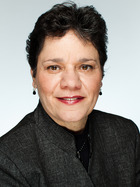 Answered by
Answered by  Answered by
Answered by  Answered by
Answered by  Answered by
Answered by  Answered by
Answered by 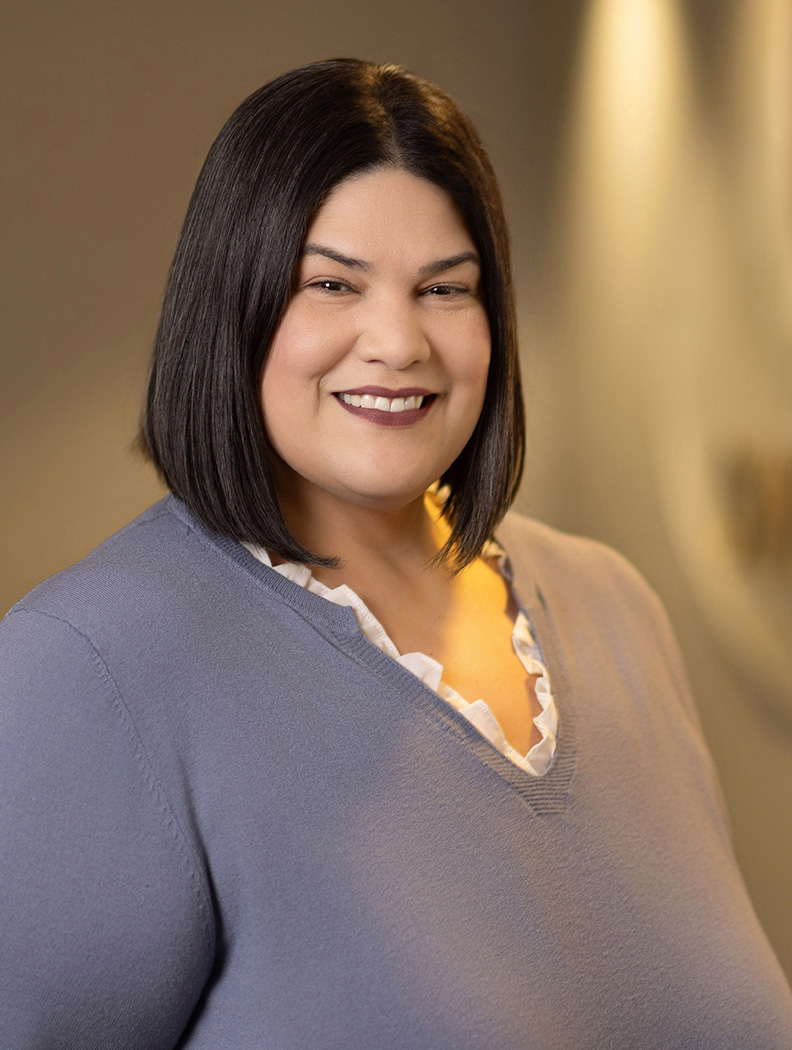 Answered by
Answered by 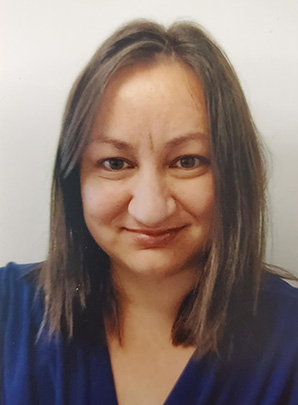 Answered by
Answered by  Answered by
Answered by  Answered by
Answered by  Answered by
Answered by  Answered by
Answered by 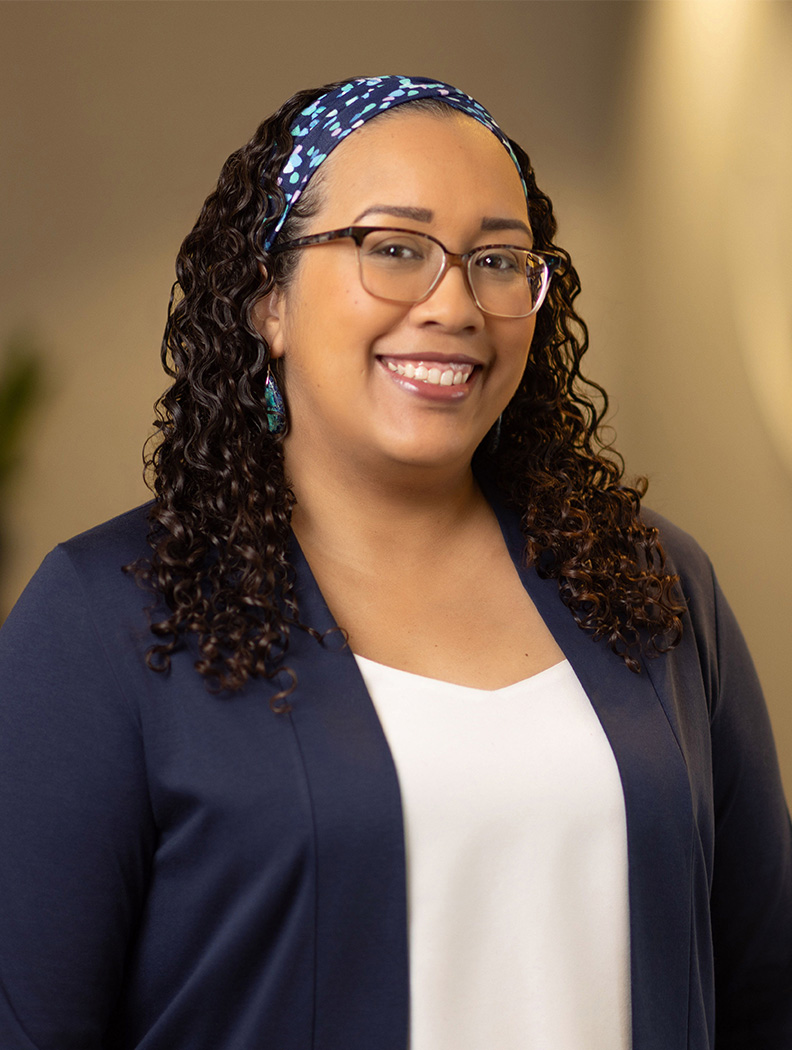 Answered by
Answered by  Answered by
Answered by 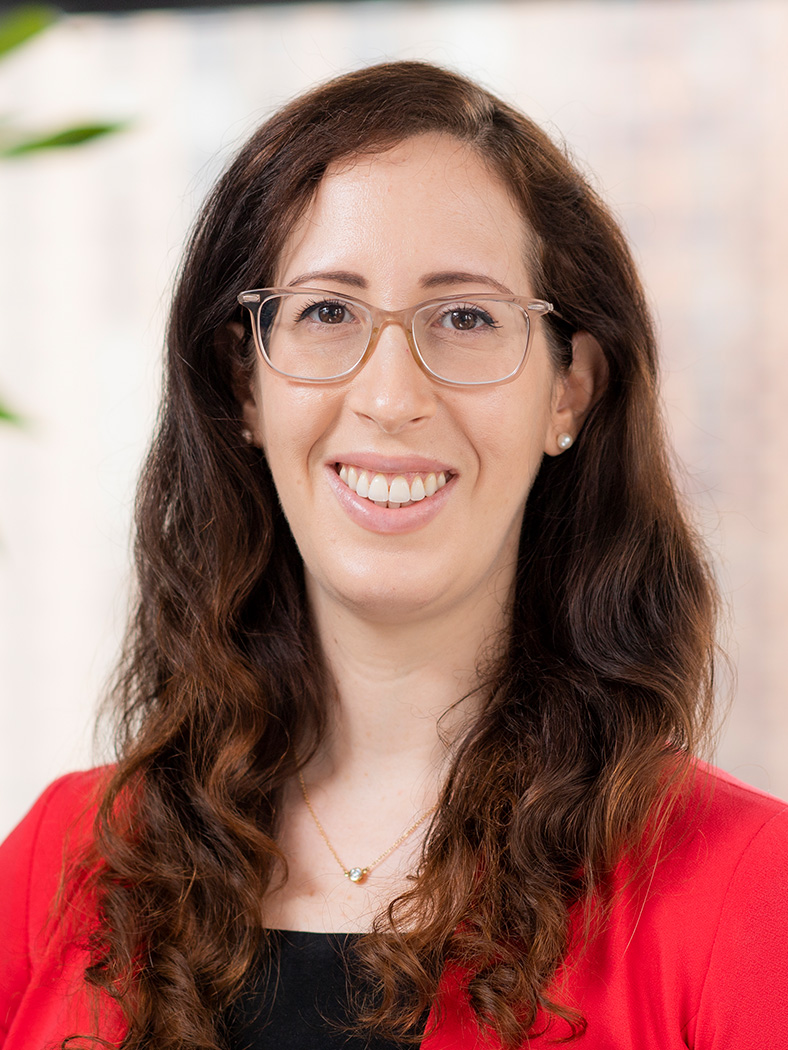 Answered by
Answered by  Answered by
Answered by  Answered by
Answered by  Answered by
Answered by  Answered by
Answered by